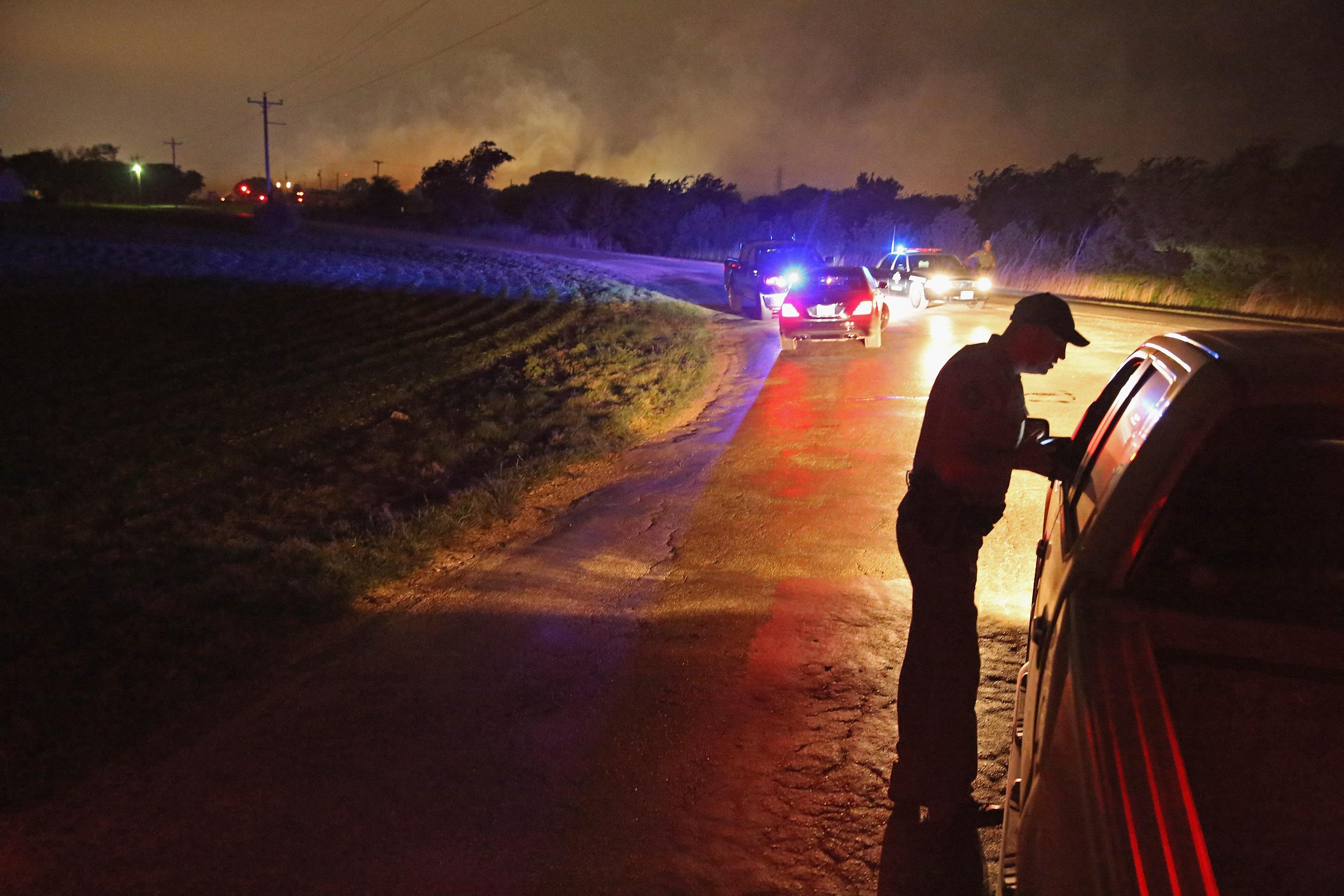A massive blast at a fertilizer plant in West, Texas, on Wednesday night injured and killed an untold number of people. According to the plant’s own emergency planning report, however, such an explosion was more or less an impossibility.
The Dallas Morning News got its hands on the West Fertilizer Co.’s report, filed with the EPA and local public safety officials assessing the risk of fire or explosion at the plant, which had an estimated 54,000 pounds anhydrous ammonia on site. Given last night’s terrible explosion, the company’s own worst-case scenario was, in retrospect, astonishingly mild (emphasis mine):
The report, reviewed Wednesday night by The Dallas Morning News, stated ‘no’ under fire or explosive risks. The worst possible scenario, the report said, would be a 10-minute release of ammonia gas that would kill or injure no one. The second worst possibility projected was a leak from a broken hose used to transfer the product, again causing no injuries. The plan says the facility did not have any other dangerous chemicals on hand. It says that the plan was on file with the local fire department and that the company had implemented proper safety rules.
The plant, according to WFAA, was fined $2,300 by the EPA in 2006 for failing to have a risk management assessment that met federal standards (that risk assessment is a different report from the one quoted above, according to both sources). West Fertilizer Co. submitted plans to the agency later that year that included, among other things, daily inspections, a barrier to prevent vehicles from colliding with their ammonia tanks, and a water spray system in case of a leak. The plant hadn’t been fined since then, according to reports.
This is not, of course, the first time that a company has vastly underestimated the dangers its work poses. In 2009, for example, BP concluded that it was “unlikely” that an accident on the Deepwater Horizon could result in an oil spill that would cause widespread “significant adverse impacts.” The following year, of course, a blast on the drilling rig resulted in one of the worst oil spills in history.
For more on the West blast, read The Slatest’s most recent updates on the explosion.
